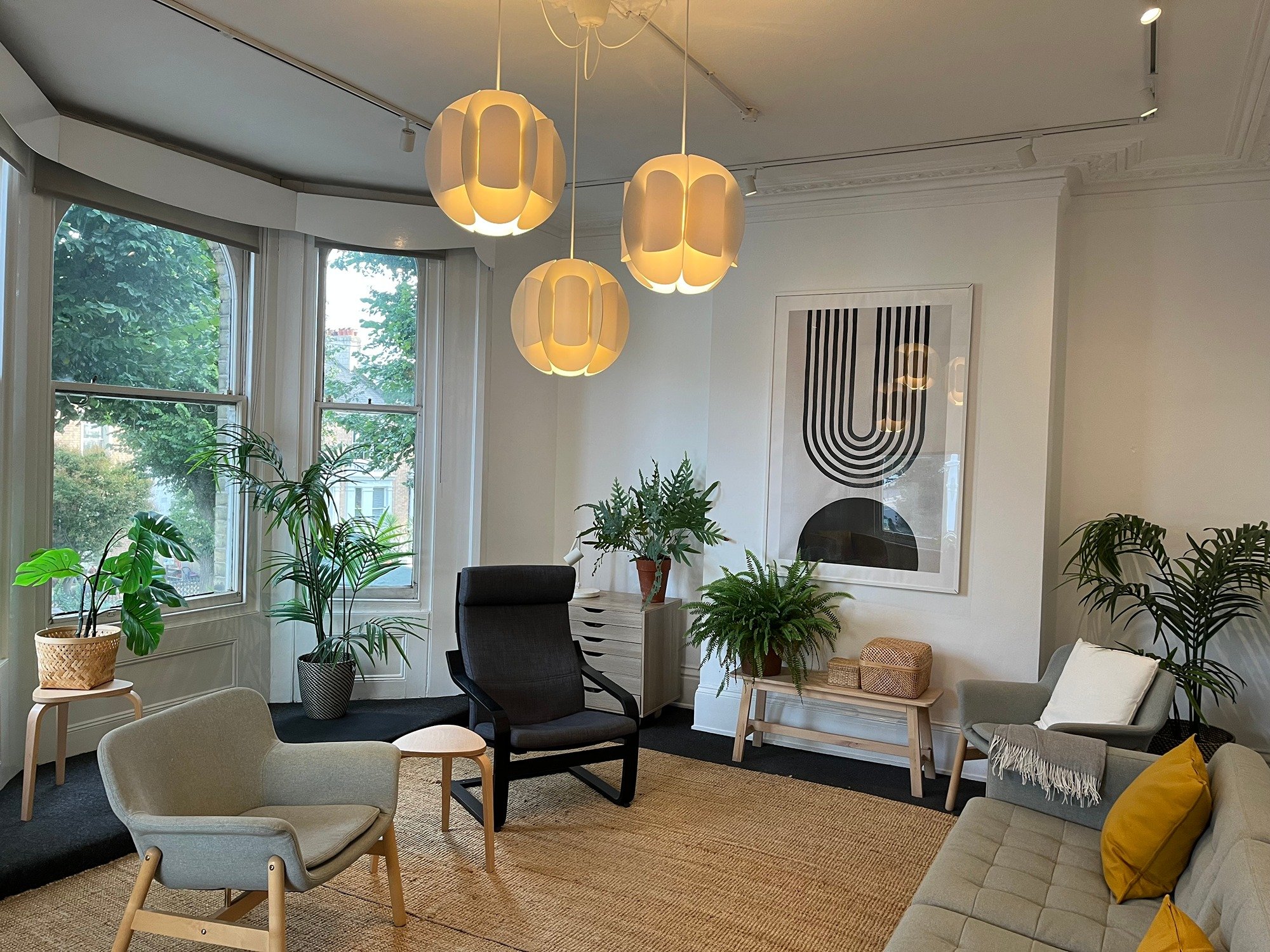Frequently Asked Questions

How does counselling work?
At its core counselling works by creating a safe confidential space and relationship with another to share and explore your inner thoughts, judgements and explore the emotions that may be weighing you down. Working integratively means I will draw on different theories such as attachment, grief models, nervous system or trauma training to best support you.
What is couples counselling and how does it work?
Couples counselling focuses on what's happening between you. We look at communication, intimacy, trust, distance, and how you handle conflict. Unlike individual counselling, which explores your internal world, couples work looks at both of you as individuals and what happens between you — how your feelings, histories, and patterns shape the relationship.
People often come when they're feeling disconnected, misunderstood, or stuck. I work with couples of all genders and orientations from an LGBTQ+ affirming perspective.
Read more about areas I work with what to expect from couples counselling
What is the difference between counselling and psychotherapy?
Many people wonder about the difference between counselling, therapy, and psychotherapy. While these terms are often used interchangeably, they all describe the process of working with a qualified mental health professional to talk through challenges, explore emotions, and develop healthier coping strategies.
Counselling usually focuses on specific issues and is often short-term or medium-term. A counsellor is professionally trained in counselling theories and practical skills, with experience in face-to-face sessions to support clients through life challenges, stress, or relationship concerns.
Psychotherapy, on the other hand, generally involves longer-term work at greater depth. Psychotherapists are also trained in counselling approaches, but they often explore underlying patterns, unconscious processes, and more complex emotional difficulties. This means psychotherapy is more suited to medium- to long-term personal growth and healing.
In short, counselling is often focused on present concerns and practical support, while psychotherapy tends to work more deeply and over a longer period of time.
How do you provide counselling?
I work online and face to face from my therapy rooms in Hove, Worthing & Online I work with clients based in the UK and Internationally (excluding the USA and Canada).
Sessions tend to happen at the same time every week however there is flexibility around this for people who work shifts or have family / work commitments.
What are your working hours?
My private practice days are:
Tue 12pm- 9pm
Wed 10am - 8pm
Thu 12pm - 5pm (online only)
Fri 10am - 6pm
How much do you charge for counselling?
Sessions are £60 for individuals and £80 for couples. I offer a free 15minute Zoom call before getting started, to see if we could be a good fit for working together and answer any initial questions. Sessions last for 50mins and occur weekly or bi-weekly.
Are you a member of any accredited bodies?
Yes I am an Accredited member of the British Association for Counselling & Psychotherapy and adhere to their Code of Ethics (BACP Number 400326).
How many sessions do I need?
There isn’t a fixed number. Counselling is an open-ended process, and we’ll go at a pace that feels right for you. Some people find what they need in a few sessions, while others choose to continue for longer. What matters is that the space supports the changes you’re looking for, in a way that feels meaningful and lasting.
